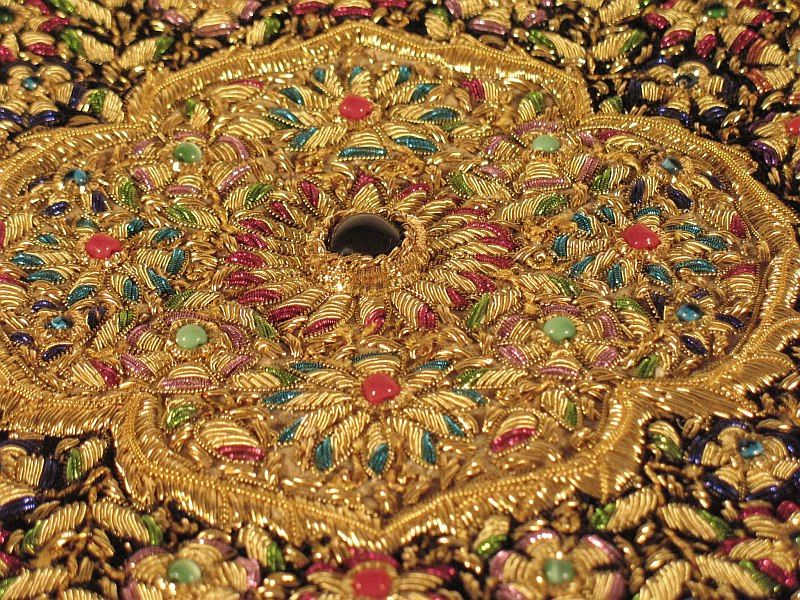===
0144,
15
===

=== |
 |
jī : 'Life, soul, self, spirit, mind; heart; courage; disposition; affection, regard; strength'. (Platts p.411)
jī chalānā : 'To long (for), hanker (after), to covet; to put forth spirit or courage, to act bravely, to brave, venture, dare'. (Platts p.412)
dam : 'Breath, vital air, life; —a moment, an instant; ... —spring, elasticity; vitality, energy, vigour, stamina, spirit, mettle; ... —edge (of a sword'. (Platts p.525)
tamāshā dikhānā : 'To show (one) a sight or spectacle, &c.; (fig.) to give (one) a trouncing'. (Platts p.336)
FWP:
SETS == EK; WORDPLAY
MOTIFS == 'DEAD LOVER SPEAKS'; SWORD; TAMASHA
NAMES
TERMS == ZILAThe excellent and beautifully exploited wordplay of jī chalānā is what energizes the whole verse. Of course as an idiomatic expression it here has an array of suitable adverbial possibilities (see the definition above) that are fully operative. But as SRF points out, chalānā is also often used for 'moving' or 'wielding' a sword. So the first line really gives us the irresistible picture of two fencers: one draws her sword, but the other responds with a flourish of his 'inner-self' or jī -- which is the kind of word that everybody knows and nobody can ever exactly define (but see Platts's attempt above). Together, lightning-fast, in a single intertwined moment the two would indeed make a 'spectacle'.
In the second line dam provides a brilliant complement, with its meanings of 'moment', 'breath' (with the sense of 'vital breath' or 'life' that echoes jī ), and 'the edge of a sword' (that of course evokes teġh ).
What kind of spectacle did the lover provide? Tantalizingly, the verse provides no direct information, though it's hard to doubt SRF's view that, one way or another, the spectacle culminates in the lover's death. (But see also the idiomatic aptness of the definition above.)